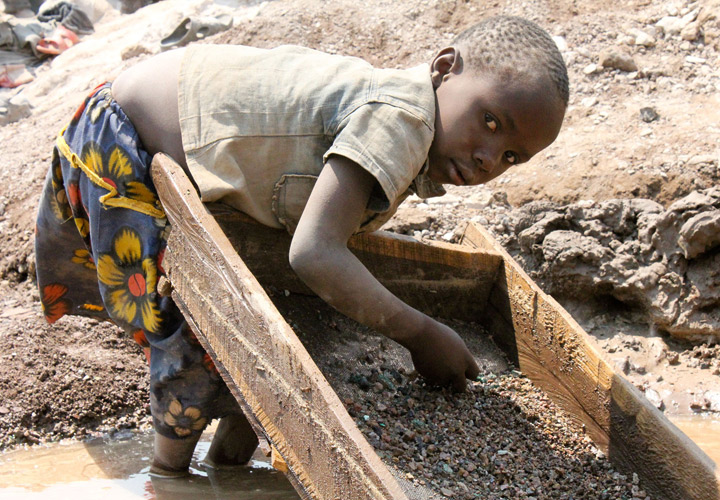TORONTO – A growing number of Canadians are willing to pay more money for products that are free of child labour, according to a new Ipsos Reid poll released Monday.

Commissioned by World Vision, the poll found that on average Canadians would pay 23 per cent more to guarantee a purchase is child-labour free—double the amount they said they were willing to pay a year ago.
Overall, 89 per cent of those surveyed said they would pay more for these types of products, up from 68 per cent who said they would last year.
“Canadians are compassionate, yet we need to better understand the realities of this problem and how we can help,” said Cheryl Hotchkiss, senior advocacy manager for World Vision. “Purchasing decisions are powerful, but we must also ask companies tougher questions about their supply chains.”
On April 24, a Bangladesh factory building collapse killed more than 1,100 textile workers, sparking debate worldwide about retail supply chains and ethical consumerism.
On Monday, Bangladesh suspended seven inspectors accused of negligence for renewing the licence of garment factories in the building that were housed in the eight-story Rana Plaza building.

Get weekly health news
READ MORE: 100s of bodies pulled from rubble of Bangladesh garment factory still unidentified: report
It is unclear if or how many of those killed in the factory collapse were children.
And while price often steers the shopping behavior of most Canadians, the poll also found that there was a strong sentiment that “action is needed on all fronts to prevent child labour and exploitation.”
Over 94 per cent of respondents felt that “children should be considered priceless.”
“Canadians are telling us they care about the people behind the products they buy,” said Hotchkiss. “But when push comes to shove, price is still the first thing most Canadians look for on a label, rather than country of origin, ingredients or ethical certification logos.”
Many Canadians believe the responsibility lies within the government, with 63 per cent stating they feel the government should ban products known to be made with child labour.
Over 79 per cent of Canadians cite Western demand for cheap products as the driver behind a company’s need for cheap labour.
In May, Canada’s Loblaw Inc., became one of 24 counties to sign an international agreement to ensure worker safety at textile factories in Bangladesh.
No child for sale
According to UNICEF, 22 000 children die every year in work related accidents and 73 million working children are less than 10 years old.
On Monday, Canadian World Vision launched a new campaign called No Child For Sale, which provides resources for Canadians to become more responsible consumers.
The agency says it is working to change and enforce laws, educate children, families and communities about children’s rights and support people to overcome poverty which often leads to child slavery.
These are some of the findings of an Ipsos Reid survey conducted between May 10 and 17, 2013, in which a sample of 1,924 Canadian adults was interviewed online. The survey is accurate to within +/- 2.5 percentage points had all Canadians adults been polled.
- Are you eligible in TD mutual fund class-action settlement? What to know
- EU proposal would ease cross-border abortion access for women facing bans
- Ontario influenza ICU admissions up 127% in past week, hospital association warns
- This H3N2 flu strain is spreading ‘rapidly.’ Why subclade K is hitting hard










Comments